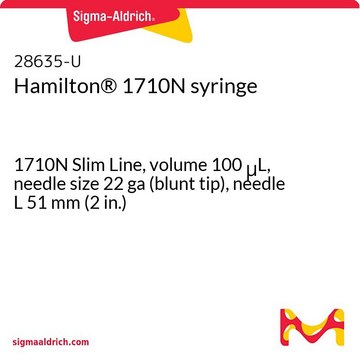48565-U
Chrysene
analytical standard
About This Item
Productos recomendados
grado
analytical standard
Nivel de calidad
envase
vial of 100 mg
técnicas
HPLC: suitable
gas chromatography (GC): suitable
bp
448 °C (lit.)
mp
252-254 °C (lit.)
aplicaciones
cleaning products
cosmetics
environmental
food and beverages
personal care
formato
neat
temp. de almacenamiento
room temp
cadena SMILES
c1ccc2c(c1)ccc3c4ccccc4ccc23
InChI
1S/C18H12/c1-3-7-15-13(5-1)9-11-18-16-8-4-2-6-14(16)10-12-17(15)18/h1-12H
Clave InChI
WDECIBYCCFPHNR-UHFFFAOYSA-N
¿Está buscando productos similares? Visita Guía de comparación de productos
Aplicación
Palabra de señalización
Danger
Frases de peligro
Consejos de prudencia
Clasificaciones de peligro
Aquatic Acute 1 - Aquatic Chronic 1 - Carc. 1B - Muta. 2
Código de clase de almacenamiento
6.1C - Combustible acute toxic Cat.3 / toxic compounds or compounds which causing chronic effects
Clase de riesgo para el agua (WGK)
WGK 3
Punto de inflamabilidad (°F)
Not applicable
Punto de inflamabilidad (°C)
Not applicable
Elija entre una de las versiones más recientes:
¿Ya tiene este producto?
Encuentre la documentación para los productos que ha comprado recientemente en la Biblioteca de documentos.
Los clientes también vieron
Nuestro equipo de científicos tiene experiencia en todas las áreas de investigación: Ciencias de la vida, Ciencia de los materiales, Síntesis química, Cromatografía, Analítica y muchas otras.
Póngase en contacto con el Servicio técnico


![Benzo[a]pyrene ≥96% (HPLC)](/deepweb/assets/sigmaaldrich/product/structures/253/820/be96d879-1811-46c0-8f11-612019691c2d/640/be96d879-1811-46c0-8f11-612019691c2d.png)